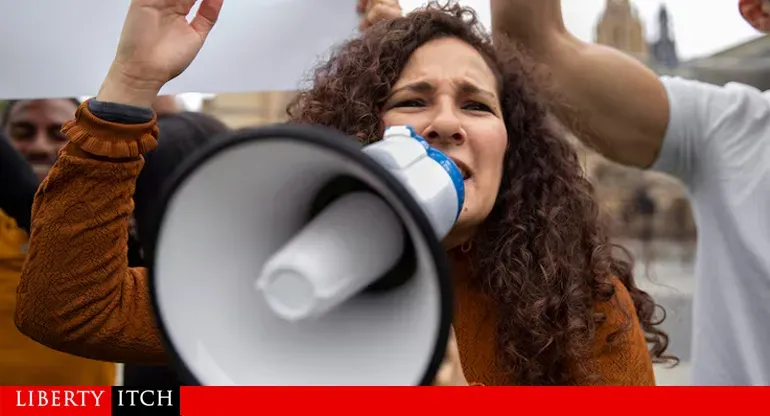Table of Contents
Just to prove that she is no kind of gold-digger or opportunist, Brittany Higgins has trousered an undisclosed sum (believed to run into the millions) of taxpayer’s money for claims which were never proven in an open court. So secret is the whole matter that the taxpayers who paid for it are forbidden from knowing anything about the deal.
“At a mediation held today, the commonwealth and Ms Higgins settled her claims,” [laywer Noor Blumer] said. “At the request of Ms Higgins, the parties have agreed that the terms of the settlement are confidential.”
The agreement came after a day of mediation.
The Australian
And that’s all the taxpayer will ever know about it.
To say that this raises crucial questions about not just transparency and conflicts-of-interest, but some of the most fundamental legal principles is an understatement. Put simply, transparency and the rule of law have been trashed and a dangerous precedent set.
Taxpayers are entitled to assurances from the public servants involved that the department is looking after taxpayers’ interests on at least two fronts. One goes to the processes that will be used to test claims before payments with public money are made. If claims are not tested, taxpayers are entitled to wonder whether integrity standards within the department are open to question.
The second issue goes to politics. The Department of Finance will know that Finance Minister Katy Gallagher was central in pursuing the Brittany Higgins saga against the former Morrison government when she was in opposition. What has the department done to deal with political conflicts, both real and perceived, before it begins mediation on December 13?
It must be borne in mind that the facts of the case were never settled in open court. In fact, they were heavily contested and Higgins’ claims contradicted by evidence given in court before the Director of Public Prosecutions abruptly ended the case without a verdict ever being delivered.
Given the size of the claim, why isn’t the department taking the Higgins claim to court? Higgins this week stated that she stands ready to “to defend the truth” in any defamation case brought by [Bruce Lehrmann]. One might assume she is willing to do the same in her civil claim.
On the contrary, her claims have now escaped any transparent legal scrutiny. Given the swiftness with which a settlement was reached, taxpayers might suspect that the department never subjected her claims to any meaningful test of veracity.
Taxpayers might also have been entitled to assume that the department would argue that Higgins bears some responsibility for what she is claiming compensation for: a significantly reduced ability to work in the future and continuing mental health issues.
It is public knowledge that Higgins chose to go to the media before she went to police. She chose not to avail herself of the legal protections for a complainant in a sexual assault matter, including giving evidence in a remote witness room and entering the court privately where cameras are not permitted. Higgins voluntarily became the public face of a #MeToo campaign, joining the Women’s March and seeking publicity; she was used to promote the careers and profiles of many journalists and political actors who have supported her, and exploited her to prosecute the former Morrison government for its alleged problem with women.
Can the taxpayer even begin to trust that the department is payout out a significant sum of public money for a valid claim?
Under its own regulations, the department is supposed to require “the existence of at least a meaningful prospect of liability being established. In particular, settlement is not to be effected merely because of the cost of defending what is clearly a spurious claim”.
Was Higgins’ claim valid or merely spurious? The taxpayer will never know.
But a precedent has obviously been set. If the department did not test the veracity of Higgins’ claim, what confidence can taxpayers have that it will do so, should other, clearly spurious claims be lodged, simply to grab a payout?
Finally, there are the issues of conflict of interest and transparency.
The Australian Federal Police expressed concern about “political interference” in the criminal case. It is on the record that Higgins’ boyfriend, former SBS political journalist David Sharaz, outlined the strategy and timing of her expose. The full recording of The Project interview features Sharaz saying that they wanted it timed for the start of the parliamentary sitting week, and that he had a Labor “friend” who would “probe and continue it going”.
That “friend” is now known to be none other than Labor “Mean Girl” Katy Gallagher — who, as now Minister of Finance, is responsible for the department which settled financially with Higgins.
The department will be cognisant of the fact that the Albanese government has a powerful political motive to ensure Higgins receives a large payout. The higher Higgins’ settlement, the worse the former Morrison government looks […] Who in the Albanese government can sign off on any settlement with Higgins without the suggestion of political interference by a government that in opposition used the Higgins allegation for its political purposes?
The Australian
Of course even a public-payroll employee has a right to compensation if they are injured or mistreated at work. But the public also has the right to be confident that due diligence was observed before large sums of their money are doled out.
But those named in such claims, such as former government ministers, are also entitled to have allegations agains them heard in a public court, not a secret Star Chamber.
And voters are entitled to be satisfied that taxpayer funds are not being used to settle political scores.









